What is Dyscalculia?
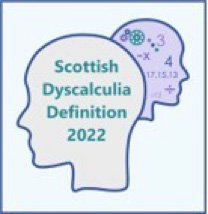
Dyscalculia and Scottish education
Scotland’s education system is an inclusive one and is designed to make sure that every child and young person is entitled to support to enable them to gain as much as possible from the opportunities which Curriculum for Excellence provides.
The 2022 Scottish Working Definition of Dyscalculia has been collaboratively developed to provide education staff, partners, families and learners with a nationally agreed description of the range of indicators and associated difficulties of dyscalculia.
At all stages, dyscalculia is on a continuum varying from mild to severe, with a range of strengths and difficulties which are affected by the nature of the activity undertaken, the learning environment and any coping strategies and support in place. As a result, every individual with dyscalculia will differ in how they are affected and in the level of severity experienced.
There are however a common set of indicators that can be observed which are included within the working definition.
Scottish Working Definition of Dyscalculia
Dyscalculia is a neurodevelopmental learning difference which can co-occur with a range of other specific learning needs.
Dyscalculia can be described as a specific difficulty in understanding number and number processes which persists despite the provision of appropriate learning opportunities. It is distinguishable from other challenges associated with numeracy and mathematics due to the:
- Persistent inability to understand and or retrieve numerical facts from memory
- Use of underdeveloped procedures and processes
- Severity of difficulties with number sense.
Associated difficulties can include:
- Subitising - immediately recognising quantity without counting
- Estimating
- Ordering, sequencing and directionality
- Recognising and understanding number symbols
- How numbers and amounts relate to each other in their representation
- Learning and recalling basic maths facts and processes
- Applying number skills to solve problems
- Everyday tasks involving number e.g. money, time
- Short-term and working memory.
These difficulties often do not reflect an individual's cognitive abilities. They may not be typical of performance in other areas and cannot be attributed to other factors, for example gaps in learning, developmental, genetic and neurodevelopmental differences which include autism, dyslexia and attention difficulties. The impact of dyscalculia as a barrier to learning varies according to the learning and teaching environment.
Dyscalculia exists in all cultures and across the range of abilities and socio-economic backgrounds. Learners with dyscalculia can continue to make progress in mathematics but may do so at a different pace.
Dyscalculia is likely to be a genetic, life-long, neurodevelopmental difference. Unidentified, it could result in mathematics anxiety, low self-esteem, high stress, atypical behaviour and low achievement. This can have associated impacts on opportunities in adult life.
Learners with dyscalculia will benefit from:
- Appropriate early identification , support, planning and review.
- Tailored support - for example, actively encouraging the use of specific materials which may include concrete materials and visual representations
- Effective, inclusive learning and teaching pedagogical approaches and environments.
This should lead to successful learners, confident individuals, effective contributors and responsible citizens.
Below is a visual representation of the difficulties associated with dyscalculia. How they impact on individuals will vary.

Dyscalculia identification and support
Receiving appropriate additional support is not dependent upon the formal identification of a specific need or label such as dyscalculia. However, this should not mean that schools and local authorities are not supportive of formally identifying additional support needs such as dyscalculia.
The identification of dyscalculia and the understanding of what it means can be extremely important to the learner’s wellbeing and their family and this should not be underestimated.
The information gathered during the collaborative identification process is valued and forms part of the ongoing monitoring of the child or young person’s progress and support within Curriculum for Excellence.
This Scottish working definition has been collaboratively developed by a short life working group with representation from:
- The Scottish Government
- Education Scotland
- Association of Scottish Principal Education Psychologists (ASPEP)
- Additional Support for Learning Officers (ASLO)
- Dyslexia Scotland
- Local authority specialist teachers and officers
Consultation with children and young people and a national parent forum also supported the development.
Coming soon!
The dyscalculia collaborative assessment summary form and professional learning resources.
Inclusive Education
What does Inclusive education mean?
Inclusive education means that the needs of all children, including those who require additional support, are included in the:
- Planning and provision of the school curriculum (whole life of the school)
- Learning and teaching resources and approaches
Inclusive education in Scotland aims to eliminate social exclusion that is a consequence of attitudes to diversity in race, social class, ethnicity, religion, gender and ability. It starts from the belief that education is a human right and the foundation of a more just society. An inclusive approach, with an appreciation of diversity and an ambition for all to achieve their full potential, is essential to getting it right for every child and raising attainment for all.
The core principles of our inclusive approach in Scotland focuses on:
- being present
- attending school
- participating - involved in all aspects of school life
- achieving the best they possibly can
These principles can be used as a means of seeing if inclusion has been successful.
The Young Ambassadors for Inclusion share their views on what inclusion means to them.
“Just not being someone on the outside looking in and be able to have the same opportunity and education”
Young Ambassadors for Inclusion 2017
The Young Ambassadors for Inclusion are young people with additional support needs who have been nominated by their local authority to join a network which provides an opportunity for them to share their views and experiences of Scottish education. A total of 26 local authorities have been represented since the network began.
Through discussion and activities, the Young Ambassadors have identified the ways they feel schools are doing well in their provision of inclusive education and also where improvements could be made.
The graphic below highlights 5 areas the Young Ambassadors for Inclusion feel support inclusion.
For further information on the Young Ambassadors for Inclusion and professional learning resourses select here
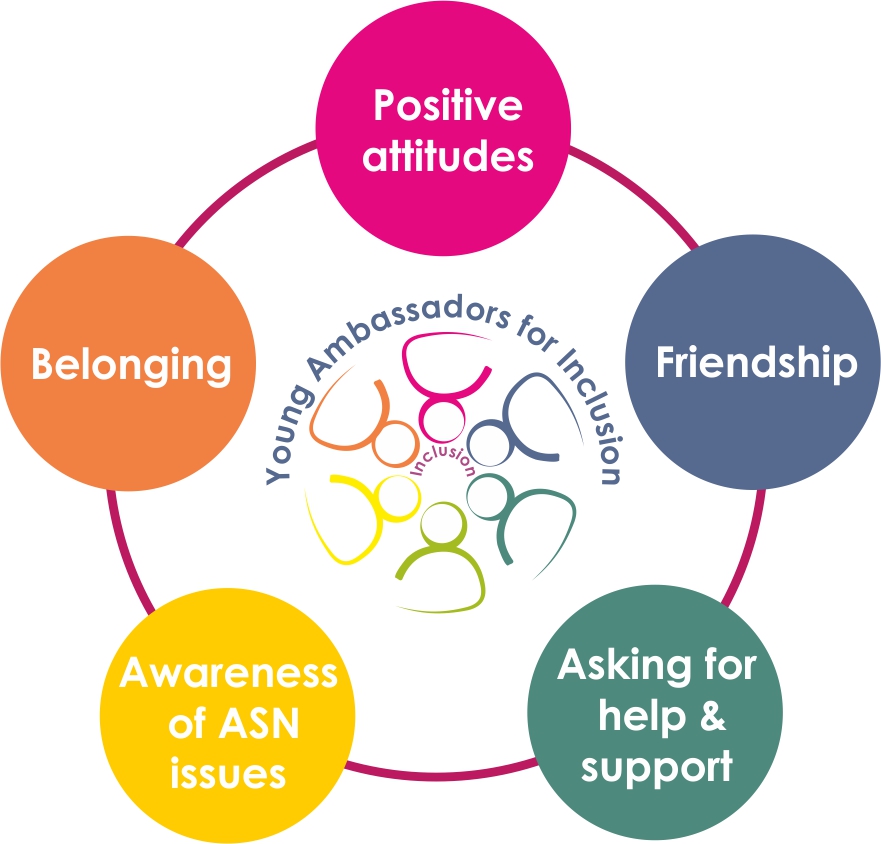
Improving inclusive education to support all learners , including those with dyslexia.
Through the Making Sense Programme schools and local authorities identified eight key areas which they feel are essential to sustainable improvement across the school community. Critical to successfully taking forward improvements in all areas is a requirement to focus on supporting the school community to develop an understanding of dyslexia and what inclusive practice means, the impact it can have on experiences and outcomes and the attainment of all learners.
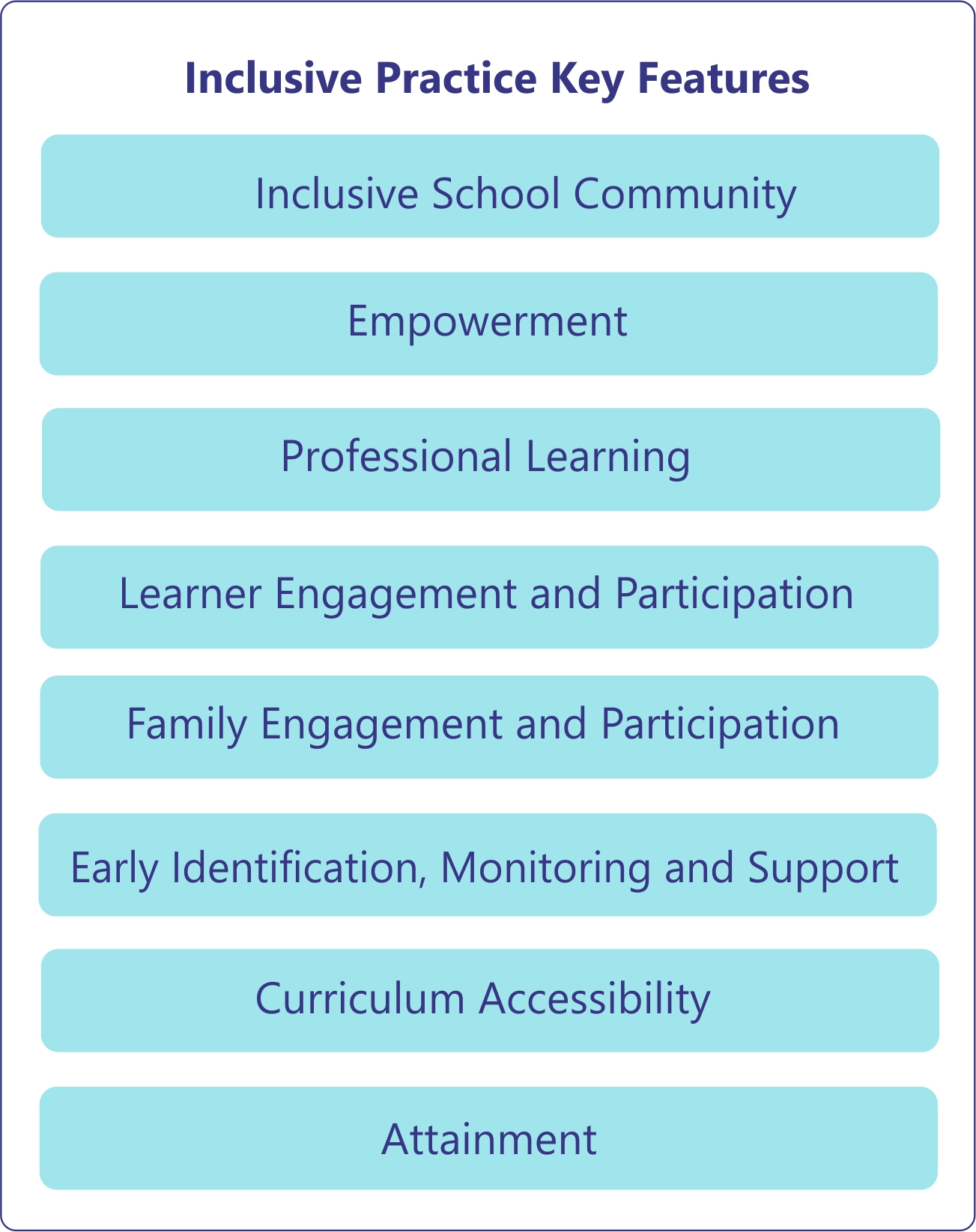
Dyslexia and Inclusive Practice: Professional Learning Resource
This resource has been collaboratively developed to improve practice and empower whole school approaches to support learners within an inclusive learning community.
The 8 key focus areas form the framework of the resource which aims to support schools and local authorities to:
- improve the quality of educational outcomes for learners with dyslexia through collaborative enquiry and effective self-evaluation
- evidence the impact of the collaborative enquiry through evidenced based improvements
- fulfil statutory duties
- support professional learning on inclusive practice
- further develop inclusive practice for all learners within the school community
- build on partnerships within the Regional Improvement Collaboratives (RICs), developing opportunities to share practice and reduce duplication of resource development.
This professional learning resource explores the key features of Inclusive Practice through a reflective and evaluative approach and includes:
- guidance and information on each key feature
- reflective questions and suggestions to support this process
- examples of evaluative enquiries using improvement methodology.
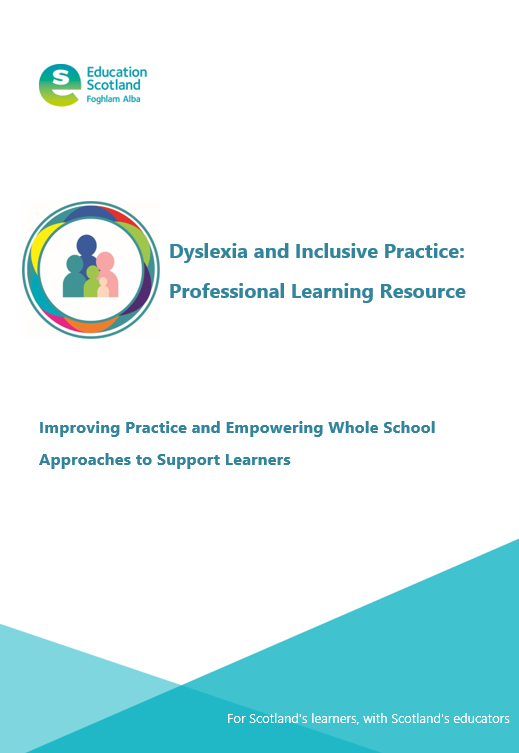
Select 'here' to download a copy of the professional learning resource.
Select here to download a Developing Inclusive School Community Improvement Exemplar
Further information on the resource can be found on the Education Scotland National Improvement Hub
Supporting Social and Emotional Wellbeing
Dyslexia impacts on parents, families and carers who become distressed that their dependents cannot get the support they need. In both children and adults, when dyslexia is unidentified or unsupported the negative impact can be high – children often lose motivation and become frustrated through the stress of trying to learn, not understanding what dyslexia is and knowing that there are ‘different’ to others because they find difficulty in doing what to others are simple tasks. This can lead to acute behavioural problems both at school and at home including bullying and anti-social behavior, as well as overall severe low self-esteem and frustration for children and adults not reaching their potential.
The impact on adults whose dyslexia is not identified and supported can be under achievement in further education and employment. The negative effects of dyslexia on self-esteem and confidence can lead to high stress levels, damage to personal relationships, day to day difficulties, depression and mental health problems. There is an established link between offenders and dyslexia. It is estimated that over 60% of prisoners have literacy difficulties, mainly dyslexia.
People with dyslexia will benefit from early identification, appropriate intervention and targeted, effective support at the right time.
Supporting children and young people understand themselves as individual and that understand their dyslexia is not a reflection of their cognitive ability. If they are able to develop and maximise their strengths this can help with the areas where they experience difficulties.
Dyslexia Unwrapped is a very helpful website developed by and for dyslexic children and young people.
Mission Superheroes Professional Learning Guide

Mission Superheroes
Click on this promotional video by our Young Ambassadors about the Mission Superheroes Professional Learning Guide.
Watch a video from Dyslexia Scotland's 2020 Members' Day, in which Dyslexia Scotland Ambassadors Paul McNeill and Rossie Stone talk about how the project evolved since the original idea in 2017.
Mission Superheroes is a free short programme that can be delivered in primary schools working with learners, families and staff. It aims to:
- Help P4-7 pupils to learn more about dyslexia
- Enable P4-7 pupils to find ways of building on their strengths and to discover how to overcome their dyslexia difficulties through the creation of their own cartoon superheroes
- Raise awareness of dyslexia and inclusive practice across the school community.
Two successful pilot phases of the programme from 2017 to 2019 were delivered in several primary schools across Scotland, led by two of Dyslexia Scotland‘s Ambassadors, Paul McNeill and Rossie Stone. Building on the lessons learned during the pilot phases, the programme resources are now available here on the Toolkit for our Scottish primary schools to use.
A free copy of the comic created by Rossie Stone, cartoon artist and creator of Dekko comics is available to view here and for download here. Rossie created Superhero and villain characters for the Mission Superheroes programme and these characters were used to engage with the children and support them to develop their own characters.
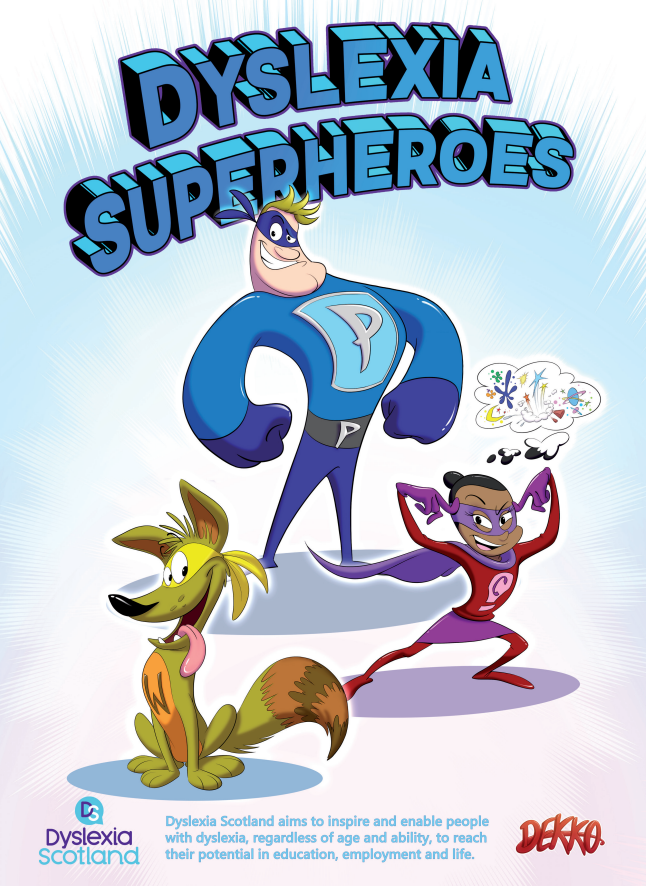
Programme Overview
The Ambassador outreach programme was made up of three workshops in each school, for teachers, parents/carers and learners. To support the planning and delivery of this programme a Professional Learning Guide has been developed which includes the following resources:
- Teaching staff workshop presentation and notes
- Session notes for each workshop
- Pupil workshop presentation and guidance for class activities/lesson plans
- Film links and link to a free cartoon comic (PDF)
- Ideas and slides for a parent workshop
- Sample questionnaires and letters
Select here to download the Professional Learning Guide which provides further details on the programme.
Watch the interview with Rossie Stone in which he talks about the Ambassador Outreach Programme.
Programme Evaluation Questionnaires for Staff
Select here to download the teaching staff questionnaire designed to be completed at the start of programme.
Select here to download the teaching staff questionnaire designed to be completed at the end of programme.
The questionnaire can also be adapted for completion on Microsoft Forms which will collate the information submitted. Access to Microsoft Forms is freely available through GLOW - Microsoft 365.
Select here to download the session plan for the workshop
Select here to download the presentation ‘The Dyslexia Scotland/Addressing Dyslexia Toolkit Ambassador Outreach Programme Workshop for teaching staff’
Select here to download the teaching staff workshop presentation notes.
Select here to download the teaching staff questionnaire designed to be completed at the start of programme. (The questionnaire can also be adapted for completion on Microsoft Forms which will collate the information submitted. Access to Microsoft Forms is freely available through GLOW - Microsoft 365).
Select here to download the sample letter for parents and carers which explains the Dyslexia Scotland Ambassador Outreach Programme.
Select here to download the sample letter for educational practitioners which explains the Dyslexia Scotland Ambassador Outreach Programme.
Select here to download a slide which has links to helpful resources and support
It is particularly important to involve parents/carers at each stage of this programme, but how this is done will depend on the school and the local authority. The Professional Learning Guide has a range of suggestions to support parental engagement with, and participation in, the outreach programme.
Select here to download the sample letter for parents and carers which explains the Dyslexia Scotland Ambassador Outreach Programme.
Select here to download a slide which has links to helpful resources and support.
Some film clips of the Pupil Workshop are available below to help staff with preparation of the workshop.
Resources
Select here to download the Session Plan
Select here to download the Pupil Workshop presentation used by Paul McNeill and Rossie Stone
Select here to download the Pupil Workshop Presentation notes
Select here to download the Strengths and Challenges List
A free copy of the Comic (PDF), which features Superheroes created by Rossie Stone and ideas from pupils during the pilot workshops is available to download at the top of this page.
Dyslexia and Neurodiversity
What does neurodiversity mean?
Neurodiversity is a relatively new term, thought to have been coined in the 1990s by Judy Singer (an autism activist). It was originally used by the autistic community, who were keen to move away from the medical model and dispel the belief that autism is something to be treated and cured rather than an important and valuable part of human diversity.
Neurodiversity
The idea of neurodiversity has now been embraced by many other groups including dyslexia support groups , who are using the term as a means of empowerment and to promote the positive qualities possessed by those with a neurological difference. It encourages people to view neurological differences such as dyslexia, autism and dyspraxia as natural and normal variations of the human genome. Furthermore, it encourages them to reject the culturally entrenched negativity which has typically surrounded those that live, learn and view the world differently.
Most people are neurotypical, meaning that the brain functions and processes information in the way society expects. However, it is estimated that around 1 in 7 people (more than 15% of people in the UK) are neurodivergent, meaning that the brain functions, learns and processes information differently.
The term neurodiversity usually refers to range of specific learning differences including:
- Attention Deficit Hyperactivity Disorder (ADHD)
- Developmental Co-ordination Disorder (DCD) also referred to as Dyspraxia
- Developmental Language Disorder (DLD)
- Epilepsy
- Foetal Alcohol Spectrum Disorder
- Intellectual Disability
- Tourettes and Tic disorders
- Specific Learning Disorder/ Differences e.g Dyslexia, Dyscalculia.
Select here to download Dyslexia Scotland's information leaflet on Neurodiversity
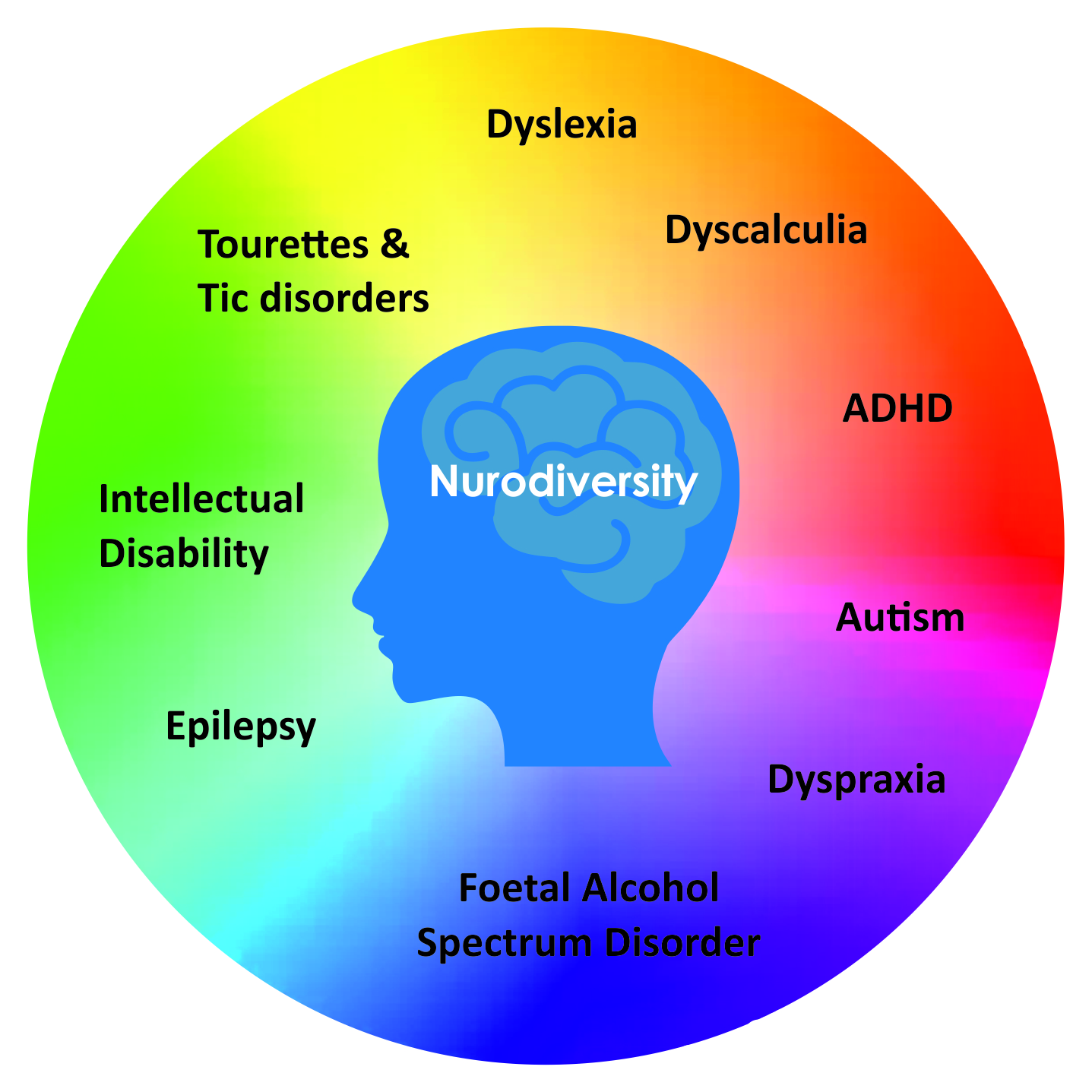
Health professionals, industry and commerce are increasingly using the term neurodiversity. This approach supports the child centred education system in Scotland which also highlights the co-occurrences between specific learning differences. Research has highlighted that the child or adult who has only one area of difficulty is rare, for example work by Kaplan et al 1998.
The National Institute of Economic and Social Research highlighted this point in a study conducted for ACAS in 2016 (the UK Advisory, Conciliation and Arbitration Service), which explained that there is a
“Propensity for neurodivergent individuals to be stereotyped according to the more well-known characteristics of their condition.”
The report stressed that not all individuals with autism are highly numerate, nor will everyone with dyslexia have insurmountable difficulties around functional literacy.
Further information: neurodiversity
To find out more about the concept of neurodiversity, further information is available in the Professional Development section of the Toolkit.
COVID-19 - Supporting learners return to educational settings

COVID-19 has brought huge challenges and changes to all our lives and the experience of learners during this unprecedented time will vary greatly. Learners may find coping with the uncertainty and significant changes to their educational experiences and routines particularly stressful and challenging. However, some learners may have experienced some positive aspects when they have been learning at home.
Learners may need individualised planning for the transitions ahead. The approach taken needs to take account of context and be relevant for the learner’s school stage and developmental level. It will be important to listen to families and learners about their experiences of learning at home. This will support transition planning, building on strengths and skills which learners may have developed during this time and also identifying areas which may require additional support due to the unprecedented situation.
Information and Guidance to support transitions - Scotland Learns
Information, guidance and resources to support practitioners, learners and families during the COVID-19 pandemic is available on Education Scotland’s Corporate website and the National Improvement Hub. Scotland Learns has been developed in response to COVID-19 and has a wide range of ideas and suggestions of activities to help parents, carers and practitioners support learning at home and weekly newsletters for parents and carers and for practitioners.
Specific guidance, information and resources have been developed by Education Scotland to support transitions for learners who require additional support during the COVID-19 pandemic. Select 'here' to access the link.


Scottish Government COVID-19 Guidance
Scottish Government. Coronavirus (COVID-19): Guidance on preparing for the start of the new school term in August 2020
Guidance to support a safe return to school for all children, young people and staff taking full account of progress made in suppressing COVID-19 in Scotland, the scientific advice received and the advice of the Education Recovery Group and other key stakeholders. Select 'here' to download the document.
Scottish Goverment Guidance for face coverings in schools. 25.08.20
Guidance for pupils and staff on the use of face coverings in schools and on school transport has been updated.Select 'here' for further information.
Scottish Government. Coronavirus (COVID-19): reopening schools’ guidance, Scottish Government.
Guidance for local authorities and schools in their planning for a safe, phased opening in August 2020.Select 'here' to download the document.
Scottish Government. Coronavirus (COVID-19): reopening schools guidance, Scottish Government
Non-statutory guidance for local authorities and schools in their planning for a safe, phased opening in August 2020. Select 'here' to download the document.
Excellent and Equity during the Covid-19 pandemic – a strategic framework for reopening schools, early learning and childcare provision in Scotland.
Excellence and Equity during the Covid-19 pandemic – a strategic framework for reopening schools, early learning and childcare provision in Scotland.
This strategic framework "Excellence and Equity During the COVID-19 Pandemic" has been jointly developed by the Scottish Government and local government, with crucial support from key partners across the education system including the Education Recovery Group, established in April 2020. Select 'here' to download the document.
Back to School
The National Parent Forum of Scotland has published some advice for parents and carers called 'Back to School'. This guide will answer as many concerns and questions as possible about the new school term and give parents and carers a better idea of how the new school term will look and feel for children and for parents and families. Select 'here' to download the document.
Engaging with learners - Supporting Mental Wellbeing
During the lockdown a number of surveys have been carried out with learners highlighting a range of areas which are causing concern for some learners. Supporting the wellbeing of all learners is a key priority as schools welcome back their pupils and support their transition from an extended time at home to educational establishments. The following information below provides insight into how learners have felt during this difficult time.
NEW: Back to School online resource
The Children’s Parliament launched Back to School, an online resource for schools to support a rights-based approach to recovery.
The resource has been designed to help school staff to understand children’s experiences of lockdown and their wellbeing needs in the current context. The practical activities will support conversations between children, and between children and adults in school, giving time and space to pause, reflect and then recover.
What's in the resource?
- Information from children (aged 8-14) about their experiences of lockdown
- A range of practical, creative, and rights-based activities designed to promote the recovery and wellbeing of children (P4 – S1/S2)
Who is the resource for? The resource has been designed for teachers and other school staff who will be supporting children’s recovery and wellbeing over the coming weeks and months.
How was the resource developed? The resource has been shaped by school staff and is a response to what children across Scotland have been telling us about their experiences of lockdown. The resource was funded by the Scottish Government Wellbeing Fund.
Further information is available at backtoschool.scot
NEW: SHINE (Schools Health and Wellbeing Improvement Research Network)
TeenCovid Life Survey
SHINE published the results from their TeenCovidLife Survey on 10th August 2020. The survey highlights that the number of learners feeling lonely as 3 times higher during lockdown compared to pre-lockdown levels
Select 'here' to download the infographic highlighting the results from the TeenCovid Life survey
Select 'here' to download the TeenCovid Life summary survey results
Select 'here' to download the TeenCovid Life full survey results
Further information On SHINE and access the survey can be found here

[INSERT TEXT]
COVID-19 has created an unprecedented situation through the
- Closure of school buildings during term 4
- The return to educational settings beginning in August 2020
Families and learners will understandably have concerns regarding the identification, support and monitoring of dyslexia and literacy difficulties. For example:
- A learner may have been due to begin the identification pathway in Term 4 but this has not been able to take place
- During time at home, families may now have concerns/think their child may be dyslexic.
Opportunities should be given to share concerns and queries during the transition planning.
Below are a range of frequently asked questions sent to the Toolkit Working Group
[INSERT TEXT]
Supporting children and young people during the Coronavirus Pandemic
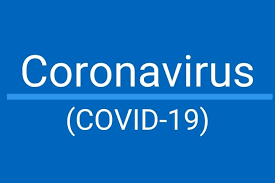
Coronavirus (Covid 19)
Covid 19 has brought huge challenges and changes to all our lives. Children and young people may find coping with the uncertainty and significant changes to their routines particularly stressful and challenging.
The emergence of a new variant of COVID-19 meant that reopening early learning and childcare settings (ELC) and schools in January 2021 would not have been consistent with a safety-first approach for children, young people and staff. Exceptional arrangements were put in place as a precautionary measure while schools were closed to the majority of pupils. The roll out of the vaccinations across Scotland has supported the reopening of ELC and schools for children and young people, however some may still experience time at home if they are isolating. The information and links on this page hope to provide some support to families and their children.
The Scottish Government continues to publish updated guidance which is intended to provide clarity on arrangements for school education.
Select here to access the Scottish Government guidance for early learning and childcare settings
Select here to access the Scottish Government guidance for schools
Vaccinations for children and young people
COVID-19 vaccinations for children and young people | Parent Club
Remote Learning
National expectations for remote learning were published by Education Scotland on the 8th January 2021. Select here to access the guidance.
Education Scotland is worked with schools and local authorities to support and improve the delivery of high quality and effective remote learning. A national overview called 'What Scotland Learned' was published on the 29th January 2021.
What Scotland Learned
What Scotland Learned is a collection of inspiring stories about how practitioners across Scotland have responded during the COVID-19 crisis. It is structured around the five themes of How Good is OUR School? and includes contributions from children and young people, adults, families and communities.
Select here to access further information.
Online Support and Remote Learning
The increasing volume of information on the internet about how to support all children, young people and their families during the Covid 19 outbreak may feel overwhelming at times. This page aims to provide a small selection of helpful resources and links recommended by the Toolkit for practitioners and families who are supporting children and young people who are learning at home because they need to sheild or isolate. Resources can be selected which are most appropriate for the child or young person being supported. ELCs and schools will be required to support their learners during these times.
Covid 19 Information
NHS Covid 19 - advice for everyone
The Scottish Government - information on supporting pupils, parents and teachers
Information for parents and carers
'It’s ok to worry about going back to school' A resource pack for parents of neurodiverse children to help with going back to school
Explaining Covid 19 to children and young people.
The BBC Newsround site has a comprehensive section on coronavirus developed for children and young people.
CALL Scotland have some visual support resources to help explain Covid 19.
Childline has a comprehensive range of information, support, activities and suggestions for children and young people.
ENABLE has produced some easy read Covid 19 fact sheets on their website.
Mencap has created some easy ready information about Coronavirus for you to use based on the latest guidance from the Government. (March 24th). Select ‘here’ to download a copy.
Young Scot Covid 19 - helpful advice and suggestions to reduce stress and anxiety which may be felt by children and young people at this time.
Supporting a return to early years and school
A range of information and resources to support learners, their families and practitioners in the return to full time education can be found in the Transitions section of the Toolkit. This includes information from the National Parent Forum of Scotland.
Supporting extended time at home
It is important for parents and carers to understand that no one expects parents/carers and family members to be the teacher. If a child or young person is required to stay at home then schools will be providing activities and work for home learning and monitoring their learners' progress.
|
Things often thought are needed by children when not in early years settings or school |
Things actually needed by children when not in early years settings school |
|---|---|
| Time tabled activities from 09.00am - end of school day | Balance of activities |
| No Screen Time | Flexible Routines |
| Lots of school work | Learning /School work |
| Rigid Routine | Practical learning activities e.g. cooking, gardening, art |
| New Toys | Construction activities, den building, model building |
| Conversation | |
| Interaction with adults - also using social media | |
| Play - games - could include using electronic devices | |
| Exercise | |
| Memories | |
| Relaxation times |
(Adapted from a resource developed by the Inverclyde Psychology Service)
Below are some suggestions which can complement the work provided by schools. Please note that:
-
Schools may already have subscriptions to learning websites and may have shared the passwords with learners and their families.
-
Some of the sites are offering free subscriptions during school closures.
Education Scotland Website | Sign up to newsletters
Top Ten Resources for teachers outlines a range of free resources from Dyslexia Scotland
Supporting learning at home
Addressing Dyslexia Toolkit A range of learning and teaching resources which support literacy and numeracy skills. The resources are helpful for all learners including those who are not dyslexic.
'At home with Dyslexia Scotland' Useful films on Dyslexia Scotland's YouTube channel including recorded Parent Masterclasses.
BBC ‘How to keep your kids learning at home’
BBC Teach A range of live lessons for primary and secondary pupils.
BBC Bitesize This site is accessible, and learners can access a wide range of learning resources appropriate to their need and interests.
GLOW is the Scottish Schools National Intranet. This is a major national ICT and telecommunications programme managed by Education Scotland. It is available to all learners in Scottish local authority schools. GLOW has a wide range of learning opportunities and is commonly being used by schools as a way to support distance learning while they are closed.
Glasgow Dyslexia Support Service (GDSS) and English as an Additional Language Services (EAL)- provides a range of resources to support home learning.
The James Dyson Foundation introduces young people to the exciting world of engineering, encouraging them to think differently, make mistakes and realize their engineering potential. Dyson engineers have designed fun and free challenge cards with activities specifically for children and young people which can be done at home.
Call Scotland provide a wide range of information and accessible resources to support home learning. See their Wheels of Apps here
SCHOLAR supports independent study; students can use the materials to study anytime, anywhere, in school, college or home.
If you have any suggestions to include within this page please email the Toolkit working group at toolkit@dyslexiascotland.org.uk
Some resources have made available free during school closures
Audible have made their children's stories free to stream for as long as schools are closed.
Barrington Stoke - a range of free resources and author videos
Parentzone Scotland - supporting Literacy at home
Gaelic
Parentzone Scotland - Supporting Gaelic at home
Below are a few suggestions - there are many more.
75th anniversary of VE (Victory in Europe) Day - Join Discovery Education as they commemorate the 75th anniversary of VE (Victory in Europe) Day. Through a series of activities, learn what life was like in Britain during the Second World War culminating in a national virtual tea party.
BBC ‘How to keep your kids learning at home’
Glasgow Science Centre daily scientific video #GSCAtHome
‘The Great Indoors’ (indoor activities from the Scouts)
Chris Packham - Spring Blossoms - Daily films by Chris Packham exploring nature and biology #WildMorningswithChris
Listening to stories /audio books - see the Language tab.
Yoga - A wide range of free online Yoga lessons are available online.
Den Building in the house or garden
Live web cameras/animations at Museums, Zoos and Wildlife Parks
The British Museum – interactive experience - https://britishmuseum.withgoogle.com/
The British Museum's learning team create and deliver accessible world class cultural learning experiences for all ages and levels. They have developed some resources which support learning at home. https://www.britishmuseum.org/learn/schools . Although the resources are linked to the English curriculum levels, the content is appropriate. For example
Egyptians – ‘How were mummies made?’
British Natural History Museum - Virtual Tours and activities to try at home https://www.nhm.ac.uk/visit/virtual-museum.html
The Smithsonian, National Museum of Natural History – Virtual Tour (America) https://naturalhistory.si.edu/visit/virtual-tour
Art Galleries
Tate for Kids - Play free art games and fun quizzes, find art activities, read about artists and share your art https://www.tate.org.uk/kids
National Portrait Gallery – Edinburgh – At Home resources (scroll down the page)
National Portrait Gallery – London Virtual Tours
The Louvre – Paris Virtual Tour https://www.louvre.fr/en/visites-en-ligne and https://www.louvre.fr/en?mod=article_inline
"One minute in a museum" - Fun 60 second animations about works of art featuring three cartoon characters who react to works of art from the Louvre museum.
Zoos and Wildlife Parks
Edinburgh Zoo -Animal Live cams
Highland Wildlife Park Animal Live cams
Blair Dummond Safari Park - Animal Webcams
Privacy policy (services)
This privacy policy sets out how Dyslexia Scotland will use and protect any information that you provide when you use our services
To see our privacy policy for our three websites click on the links below:
Why we have a privacy policy for our services
Dyslexia Scotland wants to respect your privacy and to protect any personal information that you give to us. This policy is made in order to comply with the provisions of the Data Protection Act 1998 and the General Data Protection Regulation (GDPR) from 25 May 2018. It will tell you how Dyslexia Scotland will use any personal information that we collect from you.
For the purpose of the Data Protection Act 1998 (the Act) and GDPR, the data controller is Dyslexia Scotland, Cameron House, Forthside Way, Stirling FK8 1QZ.
Dyslexia Scotland may change this policy at any time by updating this page. You should check this page from time to time to ensure that you are happy with any changes. This policy is effective from 25 May 2018.
How do we collect information?
We only collect information about you if we have a reason to do so – for example to provide our services, to communicate with you or to make our services better. If you are 13 years old or under, please get your parent/carer/guardian's permission before you give us any personal information about yourself.
We collect personal information about you if and when you provide information to us.
For example:
- when you enquire about services or events we run
- when you register with us to take part in an event or competition
- when you contribute stories, articles or artwork
- when you make a donation or join as a member
- when you take part in a survey
- when you call our Helpline, we will ask for your contact details if you wish us to send you any information
- when you give us personal information in any other way
We have a network of volunteer-led branches and Adult Networks who run events about dyslexia. If you attend these meetings, you will be asked if you would like to leave your email address so that they can contact you about future events. If you do provide your email address, it will be shared with relevant staff members in our main office.
If you pass your email address to us and wish to hear about branch or Adult Network meetings, we will share your email address with the branch or Adult Network that is the closest to you, unless you ask us not to do so.
What information do we collect?
The types of personal information we might ask for may include your name, address, gender, email address, telephone number, credit/debit card or direct debit details (if you are buying anything through us such as membership or making a conference booking).
For surveys aimed at improving our services, we may ask you:
- demographic information such as part of your postcode, experiences and interests
- other information relevant to satisfaction surveys or opinion polls
Any data we collect when answering Helpline enquiries is only kept for statistical reporting purposes and is anonymised. If it is not needed it is deleted.
How do we use your information?
We will always ask you if you want to give us your information, and ask your permission about how we use it. We will never sell, distribute or share your information with any other organisations without your permission. We may, with your permission, sometimes contact you with offers from companies that work with Dyslexia Scotland which may be of interest to you.
If you agree, we will use the information that you give to us:
- to send you information, products or services that you have asked for
- to consider how we can make the information, products and services we offer to you better (including the websites)
- to contact you about events, fundraising, campaigning and our other work
- From time to time, we may also use your information to contact you for evaluation purposes or to ask if you wish to take part in projects led by other partners such as Education Scotland. We may contact you by email, phone or post.
- We use Google Analytics to track the number of visitors to our websites. These are anonymous statistics and no personal records will be generated based on this analysis.
How do we store your information?
Your personal information will be kept secure by Dyslexia Scotland and its branches and Adult Networks. We will only keep it for as long as it is needed and only for the purposes for which you have agreed we can use it. We shall retain your information in accordance with the timelines outlined in our Data Retention Policy/Privacy Policy.
We will not transfer your personal details to any third party for the purpose of marketing without your permission. We use certain third party service providers who may have access to your personal data so that they can provide services to us. When this occurs, we have data protection compliant contracts in place with these third parties or we have checked that their privacy policies outline how they comply with GDPR requirements. Examples of ones we use regularly are outlined below. We may also use platforms such as Zoom or Microsoft Teams for online meetings and tools such as Google forms for our services.
If you receive our e-bulletin or blog, MailChimp and Wordpress will have access to your e-mail address so that we can send you our updates. If you provide your details through our websites then Corporate Culture who maintains our websites and Expert IT Solutions who provide IT support services will have access to your details. Call Handling Services provides the Virtual Call Centre for our Helpline. If you reply to a survey operated by Survey Monkey, they will have access to the information you provide.
Data transfers out of the European Economic Area (EEA)
It may sometimes be necessary to transfer personal information overseas and to countries outside the European Economic Area. Contracts will be in place to make sure the recipient protects the data to the same standard as the European Economic Area.
Right of access
You have the right to ask for a copy of the information that we have about you by making a subject access request in accordance with GDPR. You can make a request to: info@dyslexiascotland.org.uk
If any information that we have about you is wrong, you can ask us to correct it for you. If your personal details change, please help us to keep those details up to date by telling us about any changes.
You can change your mind about how we share your information at any time by contacting:
Dyslexia Scotland
1st floor – Cameron House
Forthside Way
Stirling FK8 1QZ
Email: info@dyslexiascotland.org.uk
Literacy circles
The online literacy circles are currently being refreshed and are therefore temporarily unavailable. We apologise for any inconvenience.
The summary PDF versions, which include a planning tool, are still available to download by clicking the links in the Resources bar on the bottom left of this page.
